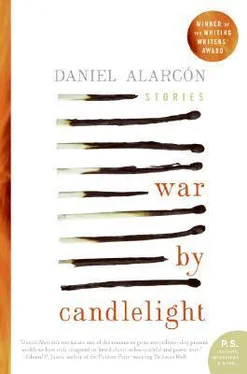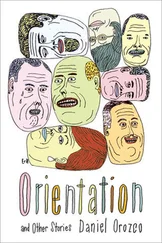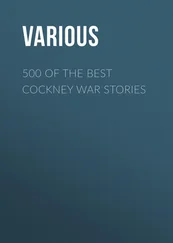I’m ready, he thought.
And if no one questioned him, it’s because the logic was self-evident. What would he do there? How long could he live at home? A divorced painter, sometime teacher — what does an artist do in a place like that? In America, you can sweep floors and make money, if you’re willing to work — you are willing to work, aren’t you, Wari?
Yes, I am.
At anything? Outdoor work? Lifting, carting, cleaning?
Anything.
And that was it. What other questions were there? He’d be fine.
Only his mother gave voice to any concerns. “Is it about Elie?” she asked a few days before he traveled. Wari had been expecting this question. Elie, his ex-wife, whom he loved and whom he hated. At least there were no children to grow up hating him. Wari was relieved it was over, believed she must be as well.
“No, Ma,” he said. “It has nothing to do with her.”
So his mother smiled and smiled and smiled.
In Eric’s apartment, Wari daydreamed. He dressed up the lie about Leah. He lay on the couch, composing e-mails about her to his friends back home, describing the shape of her body, the colors of her skin. The solution to his fourteen-day quandary: marry her and stay, marry her and go. Marry her and it would be all the same. He imagined falling in love in monosyllables, in nods and smiles and meaningful gestures. Telling Leah the story of his life in pictograms: His modest family home. The drab, charcoal colors of his native city. His once-happy marriage and its dissolving foundations, crumbling from the inside into a perfect parody of love. It was early afternoon and Leah readied herself for a wait-ressing job. The shower ran. Through the thin walls he could hear the sound of the water against her body. Her light brown hair went dark when it was wet. He closed his eyes and pictured her naked body. Then Elie’s. Wari turned on the television, let its noise fill the living room. Almost a year from the attacks, and the inevitable replays had begun. He changed the channel, his mind wandered: Fredy on a train home to his Chinese wife, wondering if what Wari had boasted of was true. Elie, somewhere in Lima, not even aware he was gone. Leah, in the shower, not thinking of him. On every channel, buildings collapsed in clouds of dust, and Wari watched on mute, listening hopefully to Leah’s water music.
Wari rapped twice on the wooden door. This was years ago. “ Chola ,” he called to the woman who would be his wife. “ Chola , are you there?”
But Elie wasn’t there. She’d left the music on loud to discourage burglars. She lived in Magdalena, a crumbling district by the sea, in a neighborhood of stereos playing loudly in empty apartments. Fourteen-year-old kids cupped joints in their palms and kept a lookout for cops. They played soccer in the streets and tossed pebbles at the moto-taxis. Wari knocked again. “She ain’t home,” someone called from the street. Wari knew she wasn’t, but he wanted to see her. He wanted to kiss her and hold her and tell her his good news.
He was a younger, happier version of himself.
My good news, baby : his first exhibit in a gallery in Miraflores. A real opening with wine, a catalogue, and they’d promised him press, maybe even half a column interview in one of the Sunday magazines. This is what he wanted to tell her.
Wari knocked some more. He hummed along to the melody that played in her apartment. He pulled pen and paper from his bag and composed a note for her, in English. They were both studying it at an institute, Elie with much less enthusiasm. English is tacky, she’d say. She mourned the passing of Spanish, the faddish use of gringo talk. It was everywhere: on television, in print, on the radio. In cafés, their peers spoke like this: “Sí, pero asi es la gente nice. No tienen ese feeling.” Why are you learning that language, acomplejado, my dear Wari, you just paint and you’ll be fine. She made him laugh and that was why he loved her. On a piece of paper torn from a notebook, he wrote:
I come see you, but instead meet your absence.
It’s perfect, he thought. He put a W in the corner, just because — as if anyone else would come to her home and leave a note like this. He tacked it to the door and walked down to the street, music serenading the walls of empty apartments. Music that slipped out into the street. He had nothing to do but wait for her. A kid on the corner scowled at him, but Wari smiled back. It was late afternoon, the last dying light of day.
The show went up, but the reception was sparsely attended. “It’s a bad time,” said Eric, with Leah on his arm. “The anniversary has everyone on edge.”
“On edge,” Wari asked, “is like scared?”
“Just like that,” Leah said.
Wari didn’t care. He was scared too. And not because the world could explode, or because Manhattan could sink into the sea. Real fears. His paintings were glowing beneath the bright lights. A handful of people filtered in and out, sipping champagne from plastic cups. Already there was something foreign about his paintings, as if they were the work of someone else, a man he used to know, an acquaintance from a distant episode in his life. There was nothing special about them, he decided. They exist, as I exist, and that is all.
The grandiose illusion of the exile is that they are all back home, your enemies and your friends, voyeurs all, watching you. Everything has gained importance because you are away. Back home, your routines were only that. Here, they are portentous, significant. They have the weight of discovery. Can they see me? In this city, this cathedral? In this New York gallery? Never mind that it was nearly empty, and a hundred blocks from the neighborhoods where art was sold. Not for himself, but for their benefit, Wari would manufacture the appropriate amount of excitement. Make them all happy. I’m doing it, Ma, he’d say over the static. It’s a bad connection, but I know now everything will be all right.
Afterward, Eric and Leah took Wari out for drinks with some friends. He could tell they felt bad, as if they had let him down. Eric complained about student apathy. Lack of engagement, he called it. His department was in disarray, he said, they hadn’t done a very good job of advertising. Leah nodded in solemn agreement. It was all words. Nothing Wari said could convince his host that he really didn’t care. I used you , he wanted to say. I’m not a painter anymore . But that seemed so cruel, so ungrateful, and still untrue.
“Is no problem,” he repeated over and over. “We have good time.”
“Yes, yes, but still…I feel bad .”
Americans always feel bad. They wander the globe carrying this opulent burden. They take digital photographs and buy folk art, feeling a dull disappointment in themselves, and in the world. They bulldoze forests with tears in their eyes. Wari smiled. He wanted to say he understood, that none of it was Eric’s fault. It’s what had to happen. He took Eric’s hand. “Thank you,” Wari said, and squeezed.
The bar was warm and lively. The televisions broadcasted baseball games from a dozen cities. Eric’s friends congratulated Wari, clapped him on the back. “Muy bien!” they shouted gregariously. They wouldn’t let him spend a single dollar. They bought round after round until the lights from the beer signs were blurred neon arabesques. Wari felt it nearly impossible to understand a single word of their shouted conversations. There was a girl, a woman who kept making eyes at him. She was slight and had a fragile goodness to her. Wari watched her whisper with Leah, and they looked his way and smiled. He smiled back.
“I liked your paintings very much,” she said later. The night was winding down. Already a few people had left. Leah and Eric had separated from the group. They kissed each other and laughed and, by the way they looked into each other’s eyes, Wari could tell they were in love. It made him feel silly.
Читать дальше












